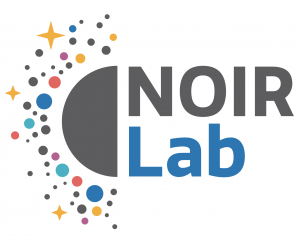Podcaster: Rob Sparks. Guest: Aaron Meisner & Austin Humphreys

Title: Backyard Worlds: Cool Neighbors
Organization: NOIRLab
Links: NOIRLab social media channels can be found at: https://www.facebook.com/NOIRLabAstro ; https://www.instagram.com/noirlabastro/ ; https://www.youtube.com/noirlabastro ; @NOIRLabAstro
NOIRLab Press Release: https://noirlab.edu/public/news/noirlab2319/
Description:
Brown dwarfs are small and dim stars that glow feebly in the infrared and are very difficult to detect. A recently launched citizen science project, Backyard Worlds Cool Neighbors, enlists the public to help identify brown dwarfs from data taken by the NASA Wide Field Infrared Explorer (WISE) satellite. In this podcast, Aaron Meisner talks about this new project and how the public can help find these elusive brown dwarfs.
Bio: Rob Sparks is in the Communications, Education and Engagement group at NSF’s NOIRLab in Tucson, Arizona.
Aaron Meisner is an astronomer at NSF’s NOIRLab in Tucson affiliated with Kitt Peak National Observatory. Aaron works on Kitt Peak’s Dark Energy Spectroscopic Instrument (DESI) project, a newly installed spectrograph at the Mayall 4-meter telescope. He specializes in building astronomical maps using large data sets at visible and infrared wavelengths. These maps are used to search for moving celestial objects, like new neighbors to the Sun and hypothesized planets in the far reaches of our own solar system. To this end, Aaron co-founded the popular Backyard Worlds: Planet 9 citizen science project and the Backyard Worlds: Cool Neighbors project.
Austin Humphreys is a Banneker Key scholar and a rising senior at the University of Maryland, College Park working towards a dual degree in astronomy and physics. Working remotely from Maryland with the Backyard Worlds: Cool Neighbors team, he is an experienced coder having experience in both physics-based and astronomy-based research projects as a part of his undergraduate education, ranging from plasma physics simulations to photometric analysis of planetary nebulae. Prior to his college education, he had the opportunity to be an observational assistant at the Maryland Science Center’s Crosby Ramsey Memorial Observatory for three years where he would operate and maintain an 8-inch refractor telescope for the public.
End of podcast:
365 Days of Astronomy
=====================
The 365 Days of Astronomy Podcast is produced by Planetary Science Institute. Audio post-production by Richard Drumm. Bandwidth donated by libsyn.com and wizzard media. You may reproduce and distribute this audio for non-commercial purposes.
This show is made possible thanks to the generous donations of people like you! Please consider supporting to our show on Patreon.com/365DaysofAstronomy and get access to bonus content.
After 10 years, the 365 Days of Astronomy podcast is entering its second decade of sharing important milestone in space exploration and astronomy discoveries. Join us and share your story. Until tomorrow! Goodbye!

